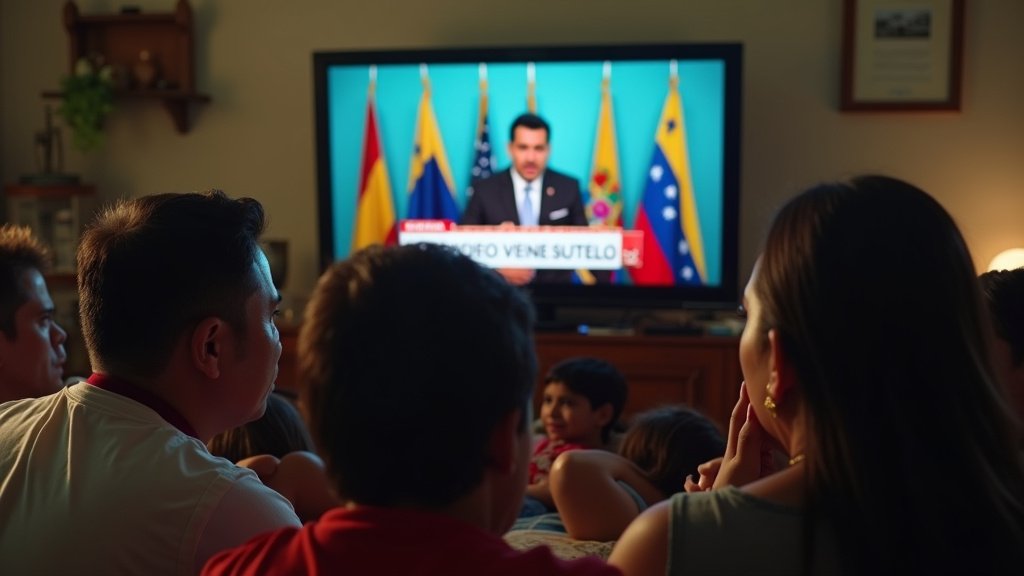Why These Hearings Matter More Than Ever
Each spring, Miami residents get a rare, direct say over one of the city’s largest federal revenue streams: U.S. Department of Housing & Urban Development (HUD) formula grants. The decisions hashed out in public hearings determine where the next fiscal year’s dollars land—everything from new affordable apartments and down-payment aid to homelessness outreach and HIV housing support.
For FY 2024-25, Miami accepted $22.8 million in entitlement funds across four core HUD programs: Community Development Block Grant (CDBG), HOME Investment Partnerships, Emergency Solutions Grant (ESG), and Housing Opportunities for Persons with AIDS (HOPWA) Miami. With inflation still squeezing construction budgets and rents climbing 9 percent year-over-year, advocates say the coming FY 2025-26 cycle could be decisive for thousands of low-income households.
Key Dates, Times & What to Expect
| Date | Time | Location | Focus Programs | Format |
|---|---|---|---|---|
| Thu, May 29 2025 | 5:30 p.m. | City Hall Commission Chambers, 3500 Pan American Dr. | CDBG, HOME, ESG, HOPWA | In-person + livestream Q&A |
| Tue, Jun 3 2025 | 5:30 p.m. | City Hall Commission Chambers | Same as above | Spanish interpretation offered |
| Thu, Jun 12 2025 | 9:00 a.m. | City Hall Commission Chambers | Action-plan amendments & prior-year re-captured funds | Administrative workshop |
The May 29 and June 3 sessions are the official “needs assessment” hearings—staff present current neighborhood data, then open the floor for two-minute public statements. The June 12 meeting zeroes in on specific funding amendments, including reallocating any unspent program income from previous years MiamiFlorida Public Notices.
Understanding the Four Pillars of HUD Funding
- Community Development Block Grant (CDBG)
Typical FY 2024-25 allocation: $5.3 M*
Flexible dollars for infrastructure, job training, and nonprofit services in low-mod areas. Recent CDBG awards funded sidewalk repairs in Little Havana and meal delivery for 560 seniors Miami. - HOME Investment Partnerships (HOME)
Typical allocation: $3.8 M
Goes toward gap financing on new affordable rental units, rehabilitation loans for elderly homeowners, and tenant-based rental assistance. - Emergency Solutions Grant (ESG)
Typical allocation: $1.4 M
Funds street-outreach teams, emergency shelters, and rapid-rehousing subsidies aimed at ending homelessness within 90 days. - Housing Opportunities for Persons with AIDS (HOPWA)
Typical allocation: $14 M
Provides long-term rental assistance and supportive services for more than 1,600 Miami-Dade residents living with HIV/AIDS Miami.
*Figures reflect the current fiscal year and will shift when HUD publishes 2025 allocations later this summer.
Where the Money Went Last Year
| Category | Example Projects | FY 2024-25 CDBG/HOME/ESG/HOPWA Grants |
|---|---|---|
| Affordable Housing Development | 72-unit Liberty City infill apartments, HOME gap loan | $2.9 M |
| Economic Development | Micro-loans for small grocers in food-desert tracts | $775k |
| Public Services | Elderly meal delivery, childcare scholarships | $775k |
| Homelessness Response | Rapid-rehousing subsidies for 120 households | $1.1 M |
| HIV/AIDS Housing | Permanent supportive housing, case management | $13.8 M |
(Amounts from City Commission resolutions October–December 2024) MiamiMiami
What’s New for FY 2025-26
1. Inflation-Adjusted Construction Caps
HUD raised per-unit HOME cost limits by 7 percent nationwide, freeing Miami to underwrite denser, mixed-income projects that previously stalled at budget review.
2. Anti-Displacement Guardrails
City staff propose reserving 10 percent of CDBG for “right-to-purchase” funds—helping legacy nonprofits buy gentrifying apartment buildings before private equity firms do.
3. Green Retrofits Incentive
A draft amendment would allow HOME loans to cover energy-efficiency upgrades if the property achieves a 20 percent utility-cost reduction, aligning with Miami-Dade’s climate goals.
4. Streamlined Nonprofit Reimbursement
Instead of quarterly draws, agencies meeting performance benchmarks could request monthly reimbursements, improving cash flow for smaller organizations.
These changes will debut at the June 12 workshop before hitting the City Commission agenda later this summer.
How to Prepare a Comment That Counts
- Consult the Draft Action Plan Online
Download the FY 2025-26 draft at miami.gov/housing 72 hours before the first hearing. Use Ctrl+F to search for your neighborhood or interest area. - Submit Written Testimony in Advance
Email hcdpubliccomment@miamigov.com with “HUD Comments” in the subject line. Written submissions under 500 words are read into the record. - Frame Your Ask Around HUD Eligibility
Link your request to an eligible activity (e.g., “CDBG Public Service—Youth Job Training” or “HOME CHDO Set-Aside”). City attorneys will flag off-topic items. - Bring Data
If advocating for sidewalk repairs, cite pedestrian-injury stats or ADA compliance maps. Data-backed pitches historically score higher during staff scoring. - Rally Allies
Comments with multiple speakers, petitions or letters of support tend to sway commissioners. Neighborhood associations can pool time and present a unified statement.
Timeline From Hearing to Groundbreaking
| Phase | Date Range | Key Milestones |
|---|---|---|
| Public Hearings & Needs Assessment | May 29 – Jun 12 2025 | Collect oral/written comments; revise draft plan |
| Staff Scoring & Draft Allocation Table | Jun 15 – Jul 10 | Rank projects against HUD criteria |
| City Commission Vote | Late July 2025 | Approve final allocation plan & contingency list |
| HUD Submission Deadline | Aug 15 2025 | Transmit Annual Action Plan |
| Federal Release of Funds | Oct 1 2025 (start of FY) | Activities may draw down funds after environmental clearances |
| Project Launch & Monitoring | Nov 2025 – Sep 2026 | Quarterly progress reports; site inspections |
Missing the Aug 15 deadline can delay reimbursements by up to 90 days, so City Hall typically approves the plan before the July recess.
How Your Voice Has Moved the Needle Before
- In 2023, Little River residents pushed for lighting on NW 79th St. CDBG paid for 35 new LED streetlights, cutting night-time crime by 14 percent year-over-year.
- Coconut Grove tenants cited mold complaints; $600k in ESG rapid-rehousing funds relocated 48 families within three months.
- Advocates for seniors secured an extra $166k to expand meal deliveries to shut-ins after presenting wait-list data at the 2024 hearings Miami.
Frequently Asked Questions
Do I have to speak in person?
No. Written comments carry equal legal weight if submitted before the hearing closes.
Can businesses apply directly?
For-profit developers can seek HOME loans or CDBG economic-development grants but must partner with a nonprofit sponsor or meet job-creation targets.
What happens if my project is wait-listed?
Miami keeps a contingency list; if another recipient declines funds or underspends, staff reallocate dollars in quarterly amendments—often within the same fiscal year.
Are hearings available in Spanish or Creole?
Spanish interpretation is scheduled for June 3. Residents needing Creole or sign-language services should request accommodation 48 hours ahead via 305-416-2080.
Call to Action
Miami’s HUD dollars are not automatic line items—they’re competitive resources steered by citizen priorities. If you care about affordable rents, safer sidewalks, or shelter beds, now is the moment to turn lived experience into budget ink. Download the draft plan, marshal your facts, and claim a two-minute slot that could shift millions.
For updates, follow @MiamiHousing on X or join the department’s email list at miami.gov/hcdalerts.
All figures current as of May 15 2025. Hearing details subject to change—verify at miami.gov/hcd before attending.





